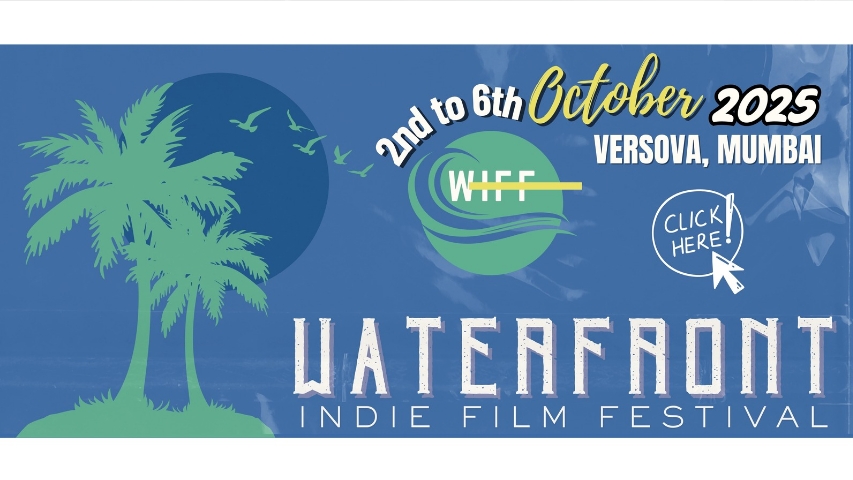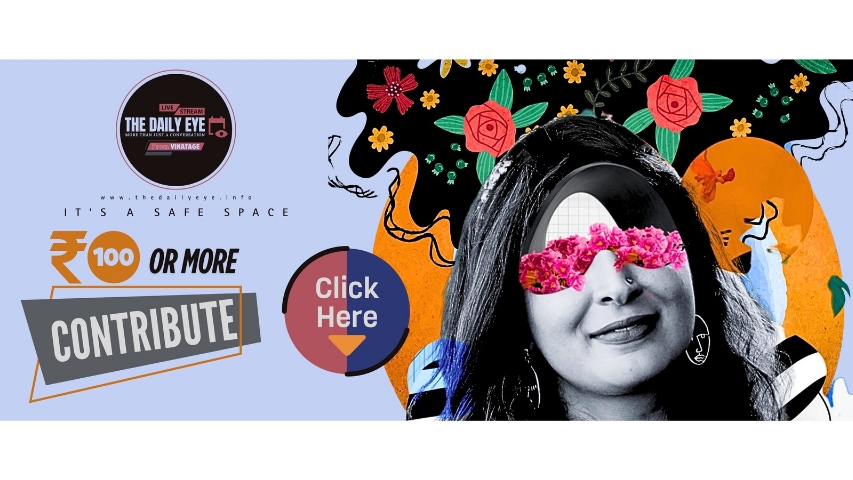
POWERFUL PEOPLE: OF PARADISE REGAINED
by Khalid Mohamed September 23 2025, 12:00 am Estimated Reading Time: 6 mins, 31 secsKhalid Mohamed interviews Saba Azad, who portrays the Kashmiri singer, Raj Begum, a quiet rebel with a cause, with boundless grace and conviction in the delicately nuanced film Songs of Paradise.
Saba Azad delivers a powerful performance as Raj Begum in Songs of Paradise, directed by Danish Renzu and streaming on Amazon Prime. In this exclusive interview, Azad opens up about embodying the Kashmiri singing legend, the challenges of portraying Zeba Begum, and working with Soni Razdan. She also discusses her theatre roots, her electro-pop band Madboy/Mink, and her reflections on women’s voices in cinema. With its focus on Kashmiri culture, female empowerment, and music, this conversation stresses Azad’s versatility as an actor and performer while celebrating the timeless legacy of Raj Begum.
She has a distinct identity in B-town’s show business, far more driven by creative satisfaction than by fame and fortune – be it as an actor, theatre director and an electro pop-funk singer. Vis-à-vis theatre, few are aware that she has worked with stalwarts Habib Tanvir, M.K. Raina, Makarand Deshpande and Naseeruddin Shah. She has also initiated her own theatre group Skins.
At the National Centre of the Performing Arts, Mumbai, she performed the play Lovepuke (2010) adapted from New Zealander Dunkan Sarkies’ script – commenting on the concept of ‘love’ through the characters of a confirmed romantic and the girl-and-boy next door.
Born to a Punjabi Sikh father and a Muslim mother in Delhi, she commenced her career in films from 2008 onwards with the popular indie romcom Dil Kabbaddi in the company of Konkona Sen Sharma, Soha Ali Khan, Rahul Bose and Rahul Khanna.
Followed a fistful of comme ci comme ça films, and web series. Of the streaming shows, she made a lasting impact in Rocket Boys (2022), on the inception of India’s nuclear program, portraying ‘Pipsy’ Parvana Irani, a fictionalised avatar of the close friend of the father of India’s nuclear program Dr Homi Bhabha.
Auspiciously, she has now excelled as the Raj Begum (name altered to Zeba Begum for her part) in the surprise packet of the year, Songs of Paradise, a homage biopic to the singer of Kashmir, who broke through the shackles of male prejudice and taboos against women during the 1950s. Directed sensitively by Danish Renzu, the film streaming on Amazon Prime, is a significant leap forward in women-centric cinema, besides offering a banquet of Kashmiri songs and ghazals which all of us needed to hear and treasure.
Although she was overseas attending the Toronto Film Festival, she agreed to an interview gamely over email. Without any more ado over to Saba Azad: 
Finding Zeba Begum
On how she was firmed for Songs of Paradise.
To start with, I’m so grateful to have been chosen. I did audition for the part, it was a slightly unusual test. We did a reading over Zoom since I was travelling at the time. I read out a scene off the page. It was such a short meeting that I didn’t think I’d get the film, but Danish (Renzu) tells me he knew I was his Zeba right after that reading.
On whether there was a role model or reference point in the process of interiorising the role of Raj Begum/ Zeba Begum.
There isn’t much available on Rajji. Her few remaining interviews are all in Kashmiri. And so many of her musical recordings were tragically lost in a fire. So we took what is available and built from there. A lot of it is our interpretation.
On whether her singing voice was used at all. Moreover, how did she subvert her real-life persona of a pop-funk singer of the band Madboy/Mink and whether it’s still active now.
My singing voice wasn’t used, not at all, frankly it wouldn’t have worked. A few humming parts were retained but that’s it. And yes, Madboy/Mink is very much active and performing ‘live’ too, we had a show a fortnight ago in Chennai.
Subtlety, Strife and Performance
On whether the film is too subtle and low-key about the prejudices of the male powers-that-were at Radio Kashmir against women singers.
I think Danish consciously treated the film without obvious, heavy-handed elements. He very much wanted to keep the film lighter, almost like a celebration of the life of Raj Begum. Those looking for melodrama would be disappointed. The film gently allows you to peek into her world and bring the kind of story of the Valley one isn’t accustomed to seeing.
I think regions of strife are the first to get homogenised into statistics and numbers. That’s dehumanising. It’s easy to ignore a number. The individual stories of victory make you sit up and take notice, reminding you that every home has a story.
On whether she could have portrayed the older Raj Begum as well.
As an actor would I have enjoyed playing the older Raj Begum? Sure, I’m an actor, we’re a greedy lot. But truly no one could have done justice to the part like Soni (Razdan) has, it was tailor-made for her. Watching her on screen was a lesson in subtlety and nuance.
On whether any particular scene or portion in the film proved to be difficult to enact.
I think parts of me bleed into all the characters I play -- if not me entirely then someone I’ve observed at some point. I definitely wanted a gentle change in Zeba as she steps out into the world - in levels of confidence and in what must have been regarded as more polish back in the day, even in how she walked and her posture.
I find comedy to be much harder than say an emotional outburst. The nativity of Zeba’s character was treading a thin line between innocence and being reduced to a caricature. I found that harder to subvert than anything else.

Beyond Cinema: Roots and Reflections
On whether Danish Renzu as a director was remarkably different from others she has worked with in films and web series.
Without demeaning anyone, I’d emphasise that Danish is a very collaborative director. He has an absolutely clear idea of how he sees his film but is simultaneously open to your interpretation and suggestions. I truly enjoyed his calm energy on the shoot.
On the photo-session scene for the Radio Kashmir competition, in which her eyes are reflective more about the character’s mounting confidence.
I love how everyone walks away with a different understanding of that scene, I think we succeeded in what we were trying to do there. For me this was a moment of quiet confidence. A photographer waits for her but she is in no hurry, she takes her time to settle into a pose of her choice then gives a nod of approval, “Now you may take the photograph!”
Her pace commands respect. It’s almost like a coming-of-age moment for her - she has finally become Zeba Begum. The way the camera is placed and catches the lens flare adds to the emotion.
On whether she could invest the values and beliefs of her Kashmiri mother in the performance.
My mum is genetically Kashmiri yes, but several generations before her hadn’t lived in Kashmir, so honestly she is more of a Dilliwali than anything else. I can’t say I was familiar with Kashmiri culture at all to be able to borrow from my mum for this role. So the guidance came from Danish, the script and then my understanding of the part.




-173X130.jpg)



-173X130.jpg)

-173X130.jpg)
-173X130.jpg)